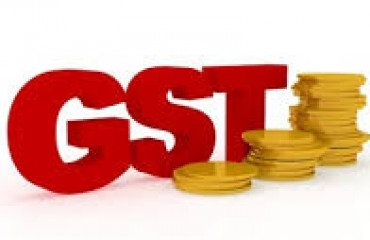
Kei cars for India? Check. Easier regulations? Check. Closer Suzuki ties? Check. Here's what Maruti Suzuki's RC Bhargava has in mind for the world's fourth-largest automobile market
A coming tax cut will revitalize sales of small cars, Maruti Suzuki India chairperson R.C. Bhargava said, positioning India's largest carmaker to reap the gains of rising mobility.
The Goods and Services Tax Council is expected to take up a series of reforms at its meeting next week, including lower duties for small cars and two-wheelers. If the Council clears a proposal to bring down GST on small cars from 28% to 18%, it could lead to substantially lower prices and fire up demand for cars.
"Lower GST rates are needed as US tariffs are causing disruptions in other Indian industries," Bhargava said at Maruti Suzuki's annual general meeting on Thursday.
Maruti Suzuki has also been pushing for more tax and regulatory benefits for hybrid cars in India, a technology its parent mastered in Japan.
Tieup
Maruti Suzuki and its parent Suzuki Motor Corp. are also forging a deeper technical and strategic alliance to streamline operations and prevent duplication of efforts, aiming to cement India as a key production base for exports.
The two companies have reached an agreement to this effect, Bhargava said, adding Suzuki is working to make India a production base for a number of cars to be exported to the global market.
"We have to work with a much better mutual understanding of all issues to avoid any kind of duplication and to maximize the synergies of what is available in Japan and what is available in India," he said. This will benefit the two companies, as well as the governments and economies of India and Japan, said Bhargava, the 91-year-old public-servant-turned-entrepreneur.
Board meets
As part of the effort to eliminate duplication, boards of the two companies would meet twice a year, once in each country. While the Suzuki board flew into India three months ago, Maruti's board is slated to visit Japan in November.
The two companies have strong collaboration on exports already, with many made-in-India cars finding their way to Japanese shores. India is fast becoming a key production hub for Suzuki's global exports. The company exported the three-door Jimny from India for several years before introducing a five-door version for India. Maruti Suzuki has also started making the e-Vitara for exports to over 100 countries, before it rolls out the electric cross-over in India in a few months.
"With the help of Suzuki Japan and Toyota, our strategy is to keep growing exports out of India," Bhargava said. Suzuki and Toyota have a global strategic collaboration.
Powertrains
Suzuki is pursuing the development of multiple powertrain technologies and closer collaboration with a cost-efficient partner like Maruti will help both the companies, said Saji John, senior research analyst at Geojit Financial Services.
"For global OEMs right now, tariff-related costs are high, so they will look to unlock cost savings," he said.
John added that Maruti's focus is shifting towards international markets; so, working closely with Suzuki will be crucial to ensure the efforts don't add new costs.
"In exports, the e-Vitara is expected to be profitable at the Ebit level from Day One itself," analysts at Motilal Oswal Financial Services, wrote in a 26 August note.
Tax cuts
Bhargava's comments come at a time when Maruti Suzuki is seen as a key beneficiary of a proposed tax cut on small cars from 28% to 18%. The Goods and Services Taxes (GST) Council is scheduled to meet on 3rd and 4th September, where it will be considering, among other things, a reduction of taxes on small cars and two-wheelers.
If the tax rates on small cars go down, it will reinvigorate the growth rate of the country's car industry, Bhargava said. India's 4.3-million-units-a-year car market is the fourth largest behind the US, China and Japan.
Maruti Suzuki has also been pushing for more tax and regulatory benefits for hybrid cars in India, a technology its parent mastered in Japan. Prime Minister Narendra Modi, who earlier this week flagged off the first electric car to be manufactured by Maruti Suzuki, said at the event that hybrid vehicles were a cornerstone of India's clean mobility push.
Hybrid tussle
Carmakers like Tata Motors and Mahindra and Mahindra on one side and Japanese carmakers Maruti Suzuki and Toyota on the other have been locked in an intense tussle over incentives for clean mobility. The latter have been seeking incentives for hybrids at par with pure electric cars, a demand that domestic carmakers have opposed given their heavy investments in electric vehicle (EV) technology.
Maruti Suzuki has also pushed for easier emission reduction norms for small cars compared to the rest of the market, which has against met resistance from its rivals.
Bhargava pitched for India to learn from Japan's introduction of Kei cars in the 1950s—smaller compact vehicles meant as an affordable alternative for two-wheeler owners.
"They are smaller, have lower safety regulations and are subject to lower taxes than other cars," the nonagenarian said. "I think India needs to consider something similar to that."
Regulations
Bhargava has been a staunch critic of the increasingly stricter regulations for cars in India. He believes that the higher cost of cars as a result of these regulations makes them more expensive for the millions of two-wheeler users, pushing back their upgrade to four-wheelers. Two-wheelers tend to be much less safe in a crash than a car, he said.
"In 2018-19, it was decided that European Safety and Emission Standards should be introduced in India and that has been the reason for the downtrend in small cars," he said. "We believe that we need to balance this situation in a manner that the users of two-wheelers can move to safer cars because two-wheelers are the most risky in terms of safety."
